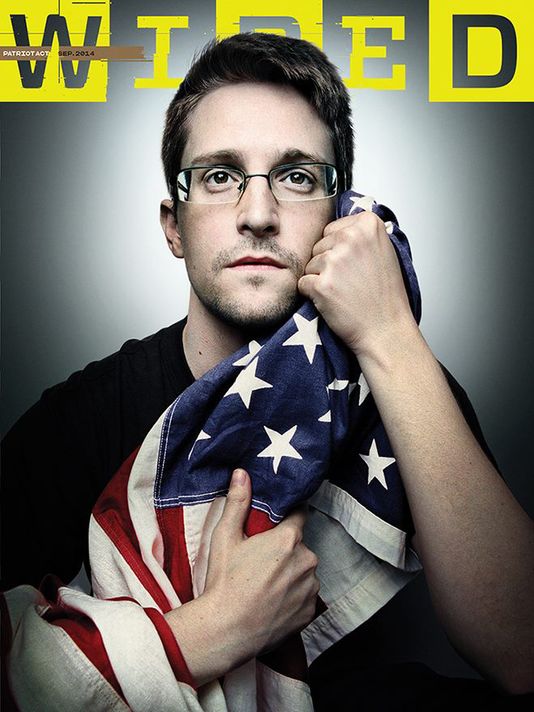Development of a U.S. counterattack for cyberterrorism that could do more harm than good was one of the final events that drove Edward Snowden to leak government secrets, the former National Security Agency contractor tells Wired magazine.

Cover of September 2014 “Wired” magazine, featuring Edward Snowden, photographed by Platon.
(Photo: Platon/WIRED)
Snowden, photographed for the story clutching an American flag, said the MonsterMind program was designed to detect a foreign cyberattack and keep it from entering the country. But it also would automatically fire back. The problem, he said, is malware can be routed through an innocent third party country.
These attacks can be spoofed, he told Wired. You could have someone sitting in China, for example, making it appear that one of these attacks is originating in Russia. And then we end up shooting back at a Russian hospital. What happens next?
Snowden, 31, also told the magazine he hopes to return to the U.S. someday.
I told the government I’d volunteer for prison, as long as it served the right purpose, he said. I care more about the country than what happens to me. But we can’t allow the law to become a political weapon or agree to scare people away from standing up for their rights, no matter how good the deal. I’m not going to be part of that.
Snowden was a contractor for Booz Allen Hamilton when he leaked details of U.S. surveillance programs to The Guardian and The Washington Post. The first reports were published in June 2013, setting off an immediate global firestorm. Snowden, who was in hiding in Hong Kong at the time, fled to Moscow.
His impact had staying power.
President Obama promised to scale back surveillance of American citizens. Germany ordered the CIA station chief out of the country. The Guardian and Post won the Pulitzer prize for public service for their coverage.
Snowden previously expressed interest in returning to the United States, but said he feared an unjust trial on charges of espionage and theft of government property could result in a lengthy prison sentence. He remains adamant that what he did was for the good of the country.
MonsterMind, he told Wired, could accidentally start a war. And it’s the ultimate threat to privacy because it requires the NSA to gain access to virtually all private communications coming in from overseas.
The argument is that the only way we can identify these malicious traffic flows and respond to them is if we’re analyzing all traffic flows, he says. And if we’re analyzing all traffic flows, that means we have to be intercepting all traffic flows. That means violating the Fourth Amendment, seizing private communications without a warrant, without probable cause or even a suspicion of wrongdoing. For everyone, all the time.





